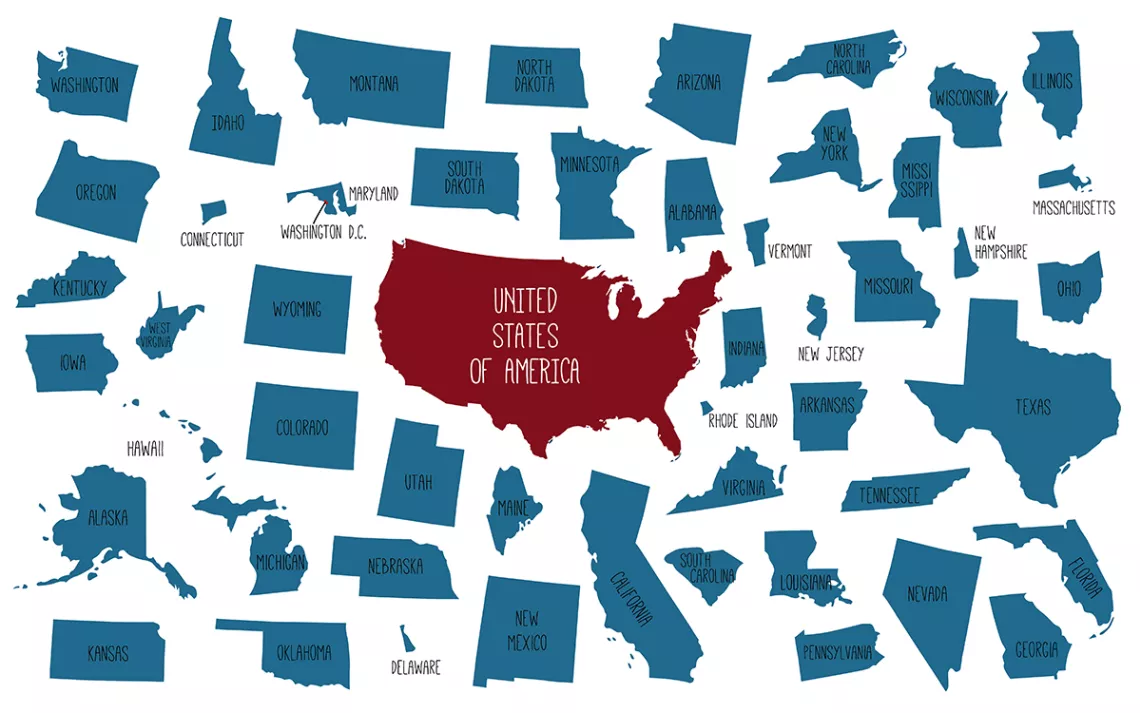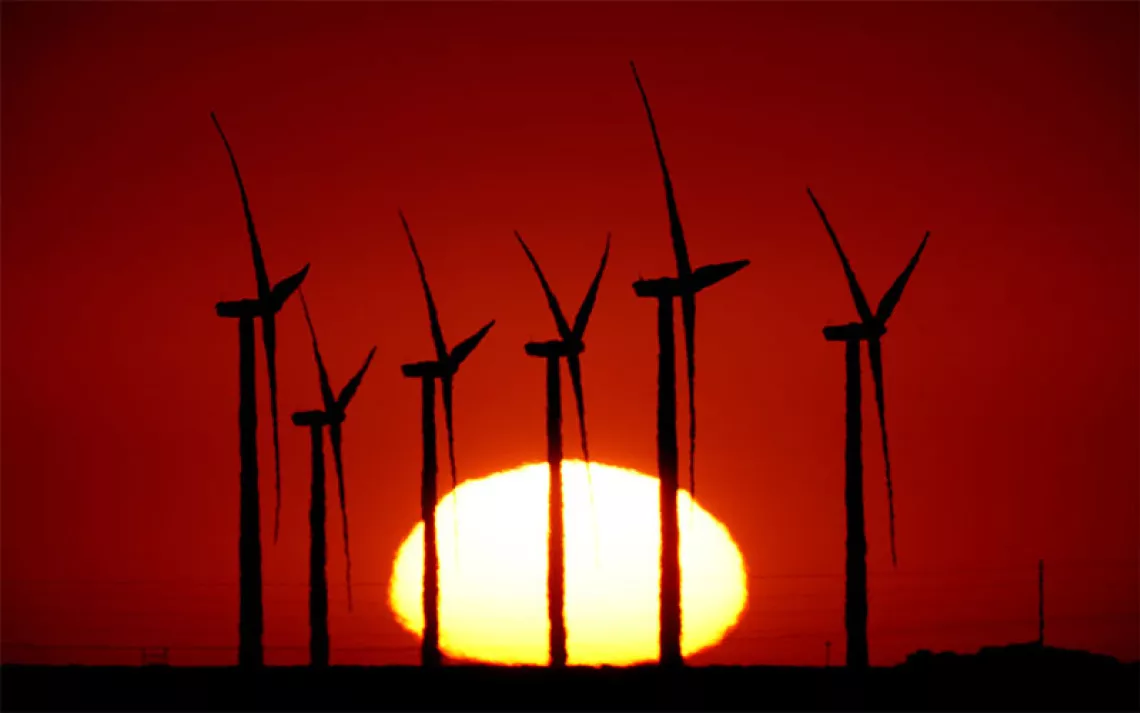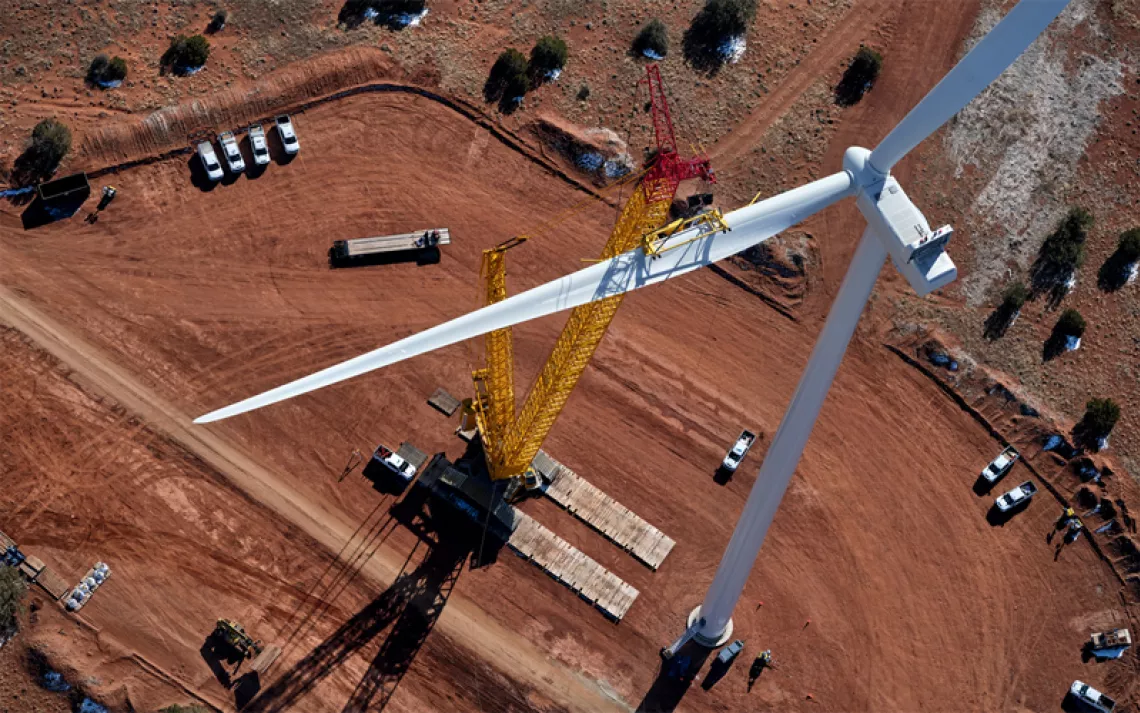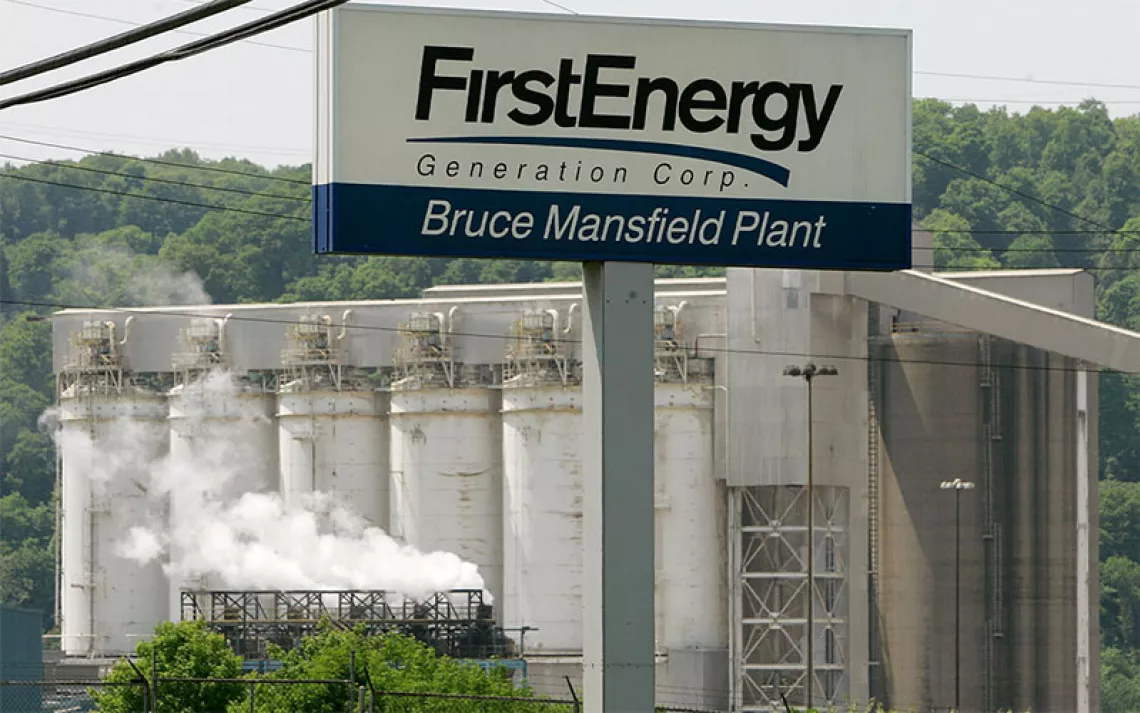Donald Trump Doesn’t Care About States' Rights
The administration shows its true motivations on emissions standards

Illustration by Elisa Lara/iStock
You’ve probably heard this common complaint from political conservatives: the Environmental Protection Agency is, at its core, a danger to American democracy. The framers of the U.S. Constitution, the line of thinking goes, imbued in the Constitution the idea that the federal government’s powers aren’t limitless and that states are able to make rules for themselves where the federal government’s power ends. Conservative lawmakers and conservative bureaucrats like to trot out this interpretation of the balance of power between the states and the federal government, known as federalism, to undercut a suite of national environmental regulations created by the EPA, from the Clean Power Plan to the Waters of the United States rule. The idea, it seems, is that by entrusting a singular entity to safeguard our shared environment, the federal government has created an agency untethered from the ideals of federalism.
But two recent policy proposals from the Trump administration show that it’s not the EPA that is untethered from the ideals of federalism. It’s President Trump and his administration that have thrown federalism under the bus in favor of unwavering fealty to a different guiding principle—protecting industry privileges at the expense of public health and the environment, even if that means trampling states' rights.
Trump is, of course, a hypocrite. Here is a man who ran a presidential campaign based on sending his opponent to prison for imagined crimes while his former campaign chair was in the midst of engaging in financial fraud. But the sheer audacity with which the Trump administration’s environmental agenda has contradicted federalist principles is particularly notable. This isn’t a question of white collar crime or election fraud (as important as those subjects are); it’s a question of the air we breathe and the planet we all share.
Last week, the Trump administration finally released its proposed replacement of the Obama administration’s Clean Power Plan, dubbed the Affordable Clean Energy Rule. The proposed rule effectively allows dirty coal plants to continue spewing carbon dioxide emissions and other pollutants into the air for much longer than would have been allowed under the Clean Power Plan. In the EPA’s media blitz following the announcement, the agency highlighted a number of conservative lawmakers who praised the rule for its federalist principles by letting states—not the federal government—decide how best to reduce carbon emissions. The irony is that the original Clean Power Plan was, in many ways, a model of federalism, allowing states to decide how best to drive down emissions (some states might favor hydropower, for instance, while others would have looked to energy efficiency) to meet a national goal of reducing carbon pollution—something that conservative detractors of the plan were loathe to publicly admit.
“I’m glad to see the Trump administration return to the principles of cooperative federalism that have successfully and impressively reduced air pollution for decades,” John Shimkus, an Illinois Republican and the House Environment Subcommittee chairman, said in a press statement. “Rather than dictate burdensome, top-down mandates on the states, the Affordable Clean Energy Rule seeks to empower states to continue reducing emissions in ways that best fit their various energy portfolios.”
But under the Trump administration, not every state is empowered to continue pursuing its own (lawful and constitutional) environmental policies. Take, for instance, California—a state that has opposed Trump’s environmental rollbacks at nearly every turn. Less than three weeks before the administration announced the Affordable Clean Energy Rule, the administration declared that it would freeze the state’s vehicle fuel efficiency standards while simultaneously proposing to revoke California’s waiver under the Clean Air Act that allows the Golden State to set more stringent standards. California has had that waiver since 1967 and has used it to great benefit by creating stricter air standards for vehicle pollution that have been adopted by 15 other states that cover more than 40 percent of the U.S. population.
So why do some states get to emit more pollutants in the name of federalism even as the Trump administration seeks to revoke California’s authority to protect the air its residents breathe?
“The hypocrisy shown by the Trump administration in daring to cite states' rights as a reason for replacing the Clean Power Plan mere weeks after running roughshod over California’s long-standing authority to set its own vehicle standards really helps illustrate their true motivations,” says Meredith Hankins, a fellow in environmental law and policy at UCLA School of Law’s Emmett Institute on Climate Change & the Environment. “It’s not states' rights; it’s a commitment to an anti-environmental, anti-regulatory agenda driven by the very industries they're supposed to be regulating.”
The only consistency between the two policy proposals is an allegiance to corporate polluters. While environmental regulation is considered a terrible overreach, environmental deregulation is considered a boon for states' rights. It’s not about federalism. The Trump administration is motivated to do everything possible to make sure that polluting industries, and those who stand to profit from them, are as freed from oversight as possible. In both cases, the winner is clear: industries that will be allowed to pollute with little consequence, shoring up profits for executives who would rather see more than a thousand pollution-related deaths each year than see their own bottom line cut by anti-pollution measures.
“‘Cooperative federalism’ seems to have two completely opposite meanings, depending on whether the states are lining up in support or against the Trump administration’s view that all environmental regulation is bad,” says California Air Resources Board chair Mary Nichols, in a statement emailed to Sierra. “The only consistent message here is that industries seeking relief from environmental regulation have a friend at EPA.”
A defining characteristic of Trump is that subtext is no longer so subtle. For years, conservative cries for deregulation have been couched in the intellectual veil of federalism. But it’s now clear that the Trump administration doesn’t care about cooperative federalism, at least not as an ideology. For Trump and his ilk, the driving ideology isn’t federalism but deregulation at any cost—just so long as those costs are being shouldered by the American public and not by friends in the fossil fuel industry.
 The Magazine of The Sierra Club
The Magazine of The Sierra Club



